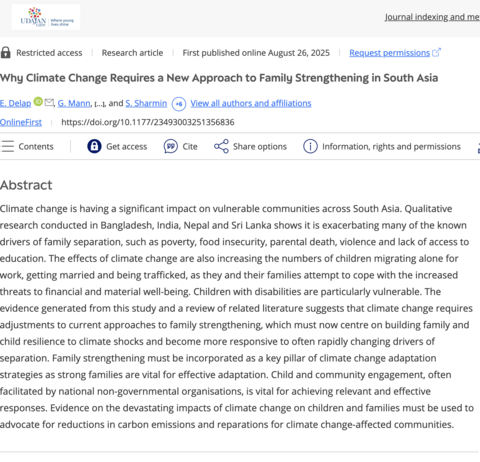Climate change is having a significant impact on vulnerable communities across South Asia. Qualitative research conducted in Bangladesh, India, Nepal and Sri Lanka shows it is exacerbating many of the known drivers of family separation, such as poverty, food insecurity, parental death, violence and lack of access to education. The effects of climate change are also increasing the numbers of children migrating alone for work, getting married and being trafficked, as they and their families attempt to cope with the increased threats to financial and material well-being. Children with disabilities are particularly vulnerable. The evidence generated from this study and a review of related literature suggests that climate change requires adjustments to current approaches to family strengthening, which must now centre on building family and child resilience to climate shocks and become more responsive to often rapidly changing drivers of separation. Family strengthening must be incorporated as a key pillar of climate change adaptation strategies as strong families are vital for effective adaptation. Child and community engagement, often facilitated by national non-governmental organisations, is vital for achieving relevant and effective responses. Evidence on the devastating impacts of climate change on children and families must be used to advocate for reductions in carbon emissions and reparations for climate change-affected communities.

